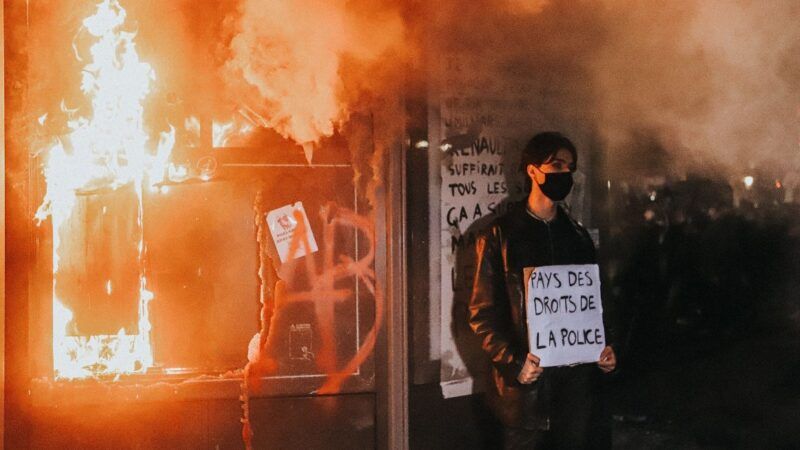Following Protests, France Retreats on Plan to Censor Filming of Police
Earlier in November, surveillance footage captured officers beating a man for not wearing a mask.

After a weekend of protests, inspired by a police beating, French President Emmanuel Macron and his ruling party are backing off from supporting a proposed law that would severely curtail, if not eliminate, the sharing of footage and images of law enforcement officers at work.
The proposal at issue, Article 24, would not officially outlaw photographing and sharing images of police. But it would threaten a yearlong jail sentence and a fine of 45,000 euros ($54,000) to anyone who takes or shares images of law enforcement with an "obvious intention to harm." Experts in France, including the government's own ombudsman, warned that the law was too vague and would have a chilling effect on the movement to expose police brutality.
And France does have a police brutality problem. This weekend's protests were inspired by the beating of a 41-year-old black man, Michel Zecler, a music producer, who was stopped by police in Paris for not wearing a mandatory coronavirus mask on Nov. 21. According to NPR, surveillance footage captured three officers forcing their way into his studio and beating him. The beating only stopped when others came to Zecler's aid. A fourth police officer threw a canister of tear gas into the studio.
On Sunday, French prosecutor Remy Heitz filed preliminary charges against the four officers. Then, in an emergency meeting on Monday, Macron and his party agreed to rewrite and resubmit Article 24 to "clarify" the law, according to Christophe Castaner, head of the La Rem party.
Article 24 is part of a package of new laws that Macron and LaRem have been pushing that would curtail individual freedoms in the name of preserving law and order. In addition to Article 24, Macron's party has also proposed a ban on campus protests that "trouble the tranquility and good order of the establishment." That prohibition would carry a fine and possible prison term for anyone who violates it. Macron's government is also trying to eliminate all nonaccredited religious schooling and homeschooling.
Macron has justified these proposed restrictions as a necessary part of the fight against Islamic radicals inside France. The proposals were introduced in the Parliament in response to the beheading of a middle school teacher in October. That teacher was targeted for assassination because he showed his class several caricatures of the Prophet Muhammad that first appeared in the French magazine Charlie Hebdo.
Macron's crackdowns appear to be not only a familiar attack on personal liberty but also an attempt to shield French authorities from accountability and criticism for their own misdeeds.


Show Comments (40)